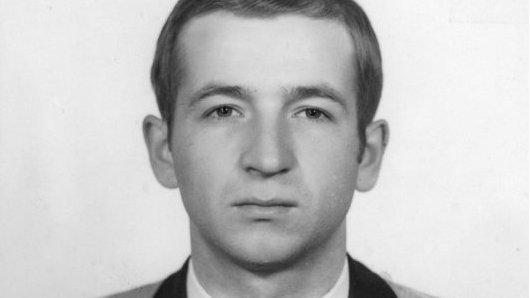Russian spy: May under pressure to take firm action
- Published
Vladimir Putin is challenged by the BBC over the Skripal poisoning
Theresa May is facing mounting pressure to take decisive action against whoever was behind the nerve agent attack on a former Russian spy and his daughter.
Ex-national security advisor Lord Ricketts said "firm action" was needed once responsibility was confirmed.
Asked whether Russia was to blame, President Vladimir Putin told the BBC: "Get to the bottom of things there, then we'll discuss this."
Sergei and Yulia Skripal remain in a critical but stable condition.
The 66-year-old retired military intelligence officer and his daughter, 33, were found slumped on a bench in Salisbury, Wiltshire, on 4 March.
Det Sgt Nick Bailey, who fell ill attending the pair, remains seriously ill in hospital but has been talking to his family.
Police activity continued on Monday afternoon, with officers - some wearing hazardous materials suits- removing a white van from the village of Winterslow, about six miles from Salisbury.
A Sainsbury's car park in Salisbury was also sealed off by police.
Earlier, Mrs May chaired a National Security Council meeting, held to discuss the latest information with ministers and intelligence and military chiefs.
She is due to update MPs in the Commons on the investigation shortly.
Foreign affairs committee chairman Tom Tugendhat told BBC Radio 4's Today programme evidence was mounting against Russia and he "would be surprised if she did not point the finger at the Kremlin".
Mr Skripal was convicted by the Russian government of passing secrets to MI6 in 2004, but given refuge in the UK in 2010 as part of a "spy swap".
Steve Cooper was in the pub where traces of a nerve agent have been found
Lord Ricketts told Today he had "little doubt that this had come from Russia".
"The really difficult judgement is who authorised it and why - was it some sort of rogue element or was it centrally authorised? I suppose that does have some impact on the kind of reactions that we need," he said.
However, Dmitry Peskov, press secretary to President Putin, said: "This incident happened on British soil and it doesn't have anything to do with the Russian Federation whatsoever, let alone the president."

Putin declines to discuss Salisbury
By Steve Rosenberg, BBC Moscow correspondent
Vladimir Putin was on the campaign trail today in southern Russia. He visited a grain centre in Krasnodar.
There, I asked him: "Is Russia behind the poisoning of Sergei Skripal?"
"We're dealing here with agriculture," he told me, "to create conditions for the lives of our people. And you talk to me about some tragedies. First, get to the bottom of what happened there and then we'll discuss this."
These are President Putin's first public comments on events in Salisbury.
In recent days, Moscow has complained of what it sees as an "anti-Russian campaign" in the British media over the poisoning of the Skripals.

Theresa May's official spokesman said: "If we get to a position when we are able to attribute this attack then we will do so and the government will deliver an appropriate response."
In an interview with the Evening Standard, external, Home Secretary Amber Rudd said she was not going to "enter into a kind of great big tit-for-tat" with Russia "which is what they are longing I'm sure for us to do".
But she said the UK would consider strong measures if "a hostile state" were found guilty of the poisoning.
Dominic Casciani shows us the locations where Sergei Skripal spent Sunday with his daughter
On Sunday, up to 500 Salisbury pub-goers and diners were told to wash their possessions as a precaution after trace amounts of the substance used to poison Sergei and Yulia Skripal were found on and around a table where they had eaten in Zizzi.
The table has since been destroyed.
Traces were also found at the Mill pub in the city, which like Zizzi remains closed.
In a statement, Zizzi said it was "shocked and saddened by the events" and its priority was to ensure the wellbeing of its staff and customers. Diners at its Salisbury branch with concerns are being urged to call 0345 6022698.
The advice to wash clothing and disinfect items such as mobile phones, external applies to anyone in either venue between 13:30 GMT on Sunday 4 March to closing time on Monday.
Prof Dame Sally Davies, the chief medical officer for England, said the advice was a "belt and braces" measure, adding: "I am confident none of these customers or staff will have suffered harm."
But Steve Cooper, who was at the Mill pub with his wife, told the BBC he was "outraged" that the instructions were not given sooner, adding: "I'd like to know what are the long-term implications to me and my wife."
Prof Dame Sally Davies said the risk of harm was "low"
Former chief medical officer for England, Sir Liam Donaldson, said he had been a "little surprised that the communication with the public has been in such general terms and slow to get off the ground... in a situation when there are so many unknowns about the risk".
Whitehall sources have acknowledged the government will need to pay more attention to the threat of chemical warfare following the Salisbury attack.
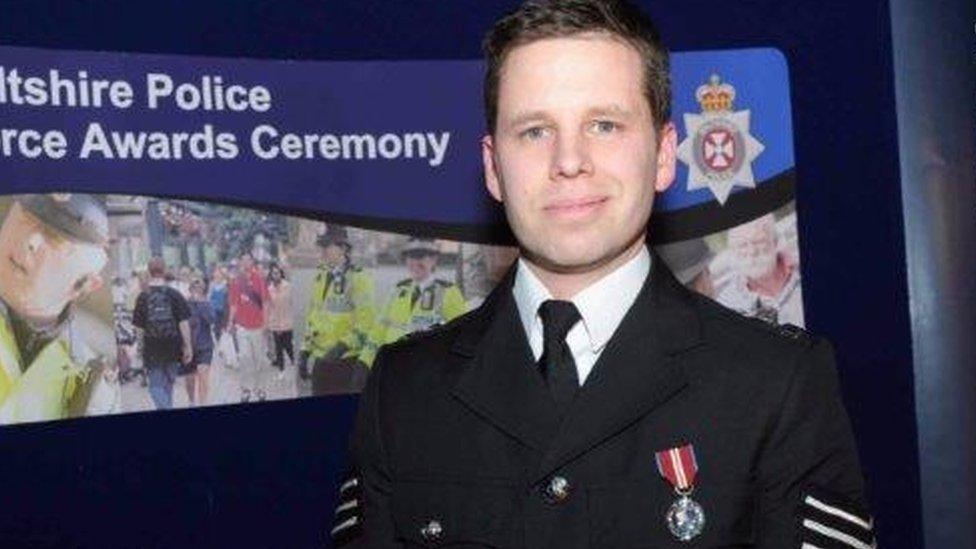
Det Sgt Nick Bailey remains in hospital
Meanwhile, a man from Salisbury who breached the cordon around the bench where Mr Skripal and his daughter were found, has been jailed for 16 weeks.
Father-of-three Jamie Knight, 30, who pleaded guilty to assault, criminal damage and racially aggravated public disorder, was said to have been drunk when he shouted out abusive remarks about Russians, Swindon Magistrates' Court was told.
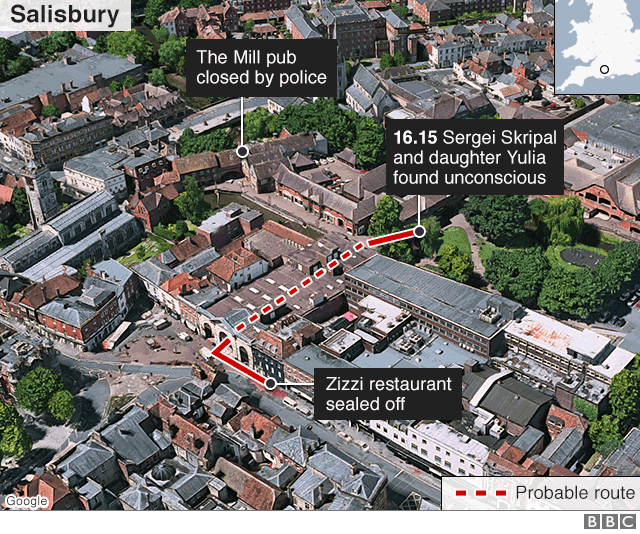

Do you have any information to share on this story? Email haveyoursay@bbc.co.uk, external.
Please include a contact number if you are willing to speak to a BBC journalist. You can also contact us in the following ways:
WhatsApp: +447555 173285
Tweet: @BBC_HaveYourSay, external
Send pictures/video to yourpics@bbc.co.uk, external
Send an SMS or MMS to 61124
- Published11 March 2018
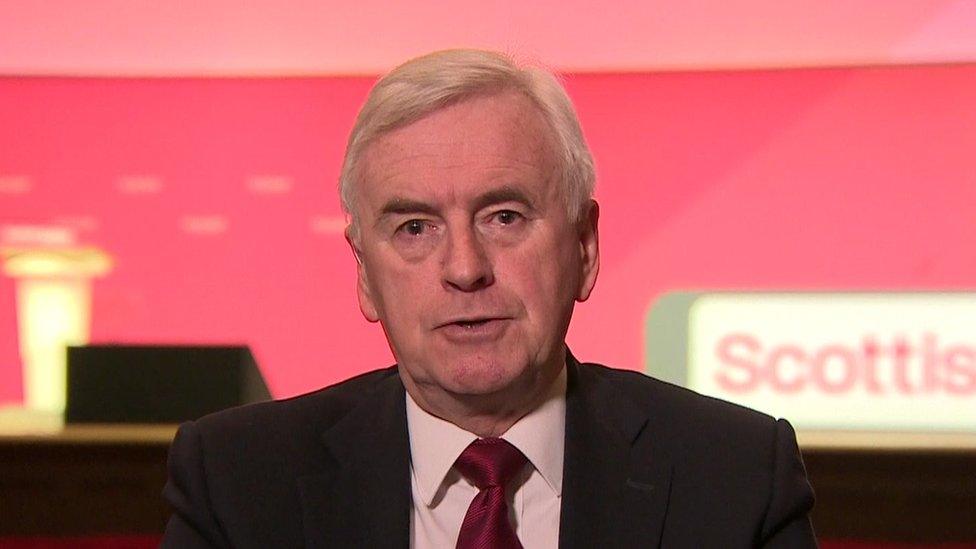
- Published12 March 2018
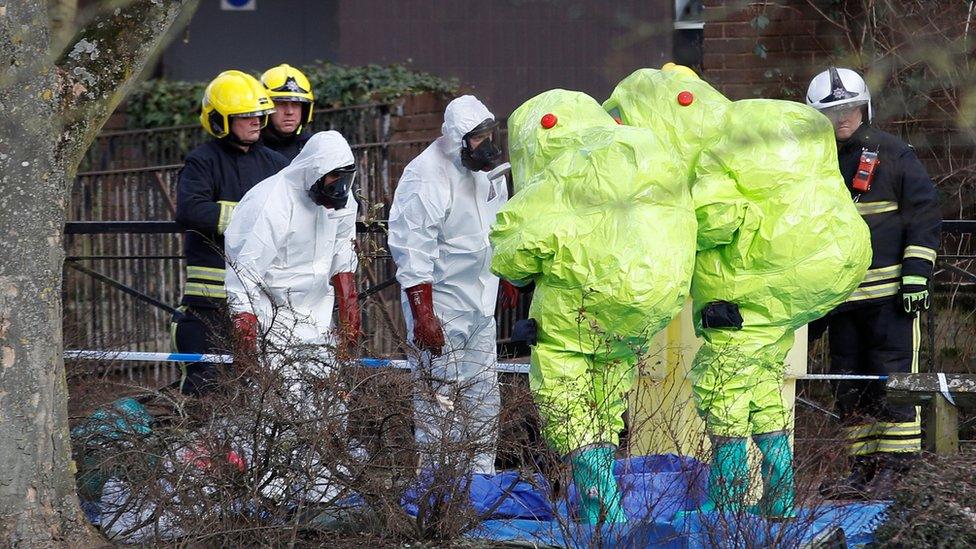
- Published8 October 2018
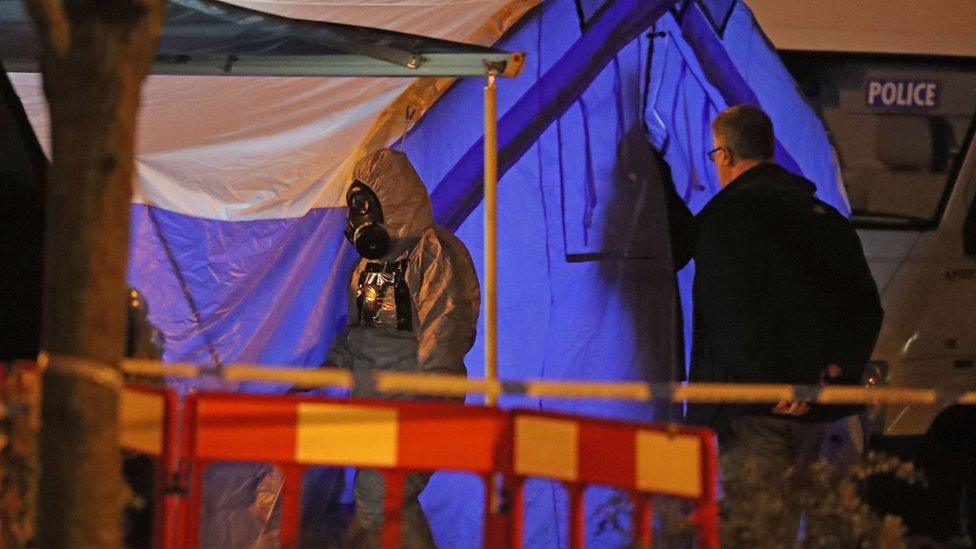
- Published10 March 2018
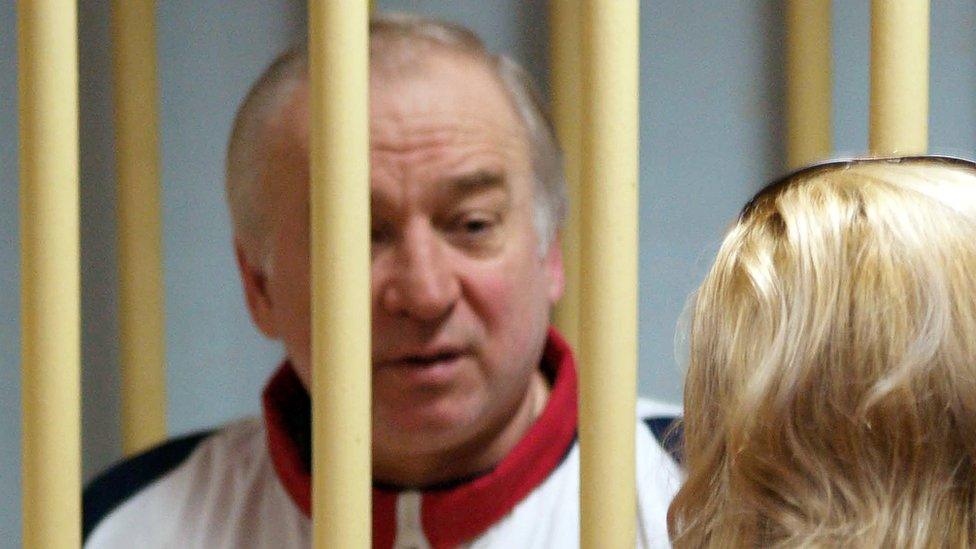
- Published10 March 2018
